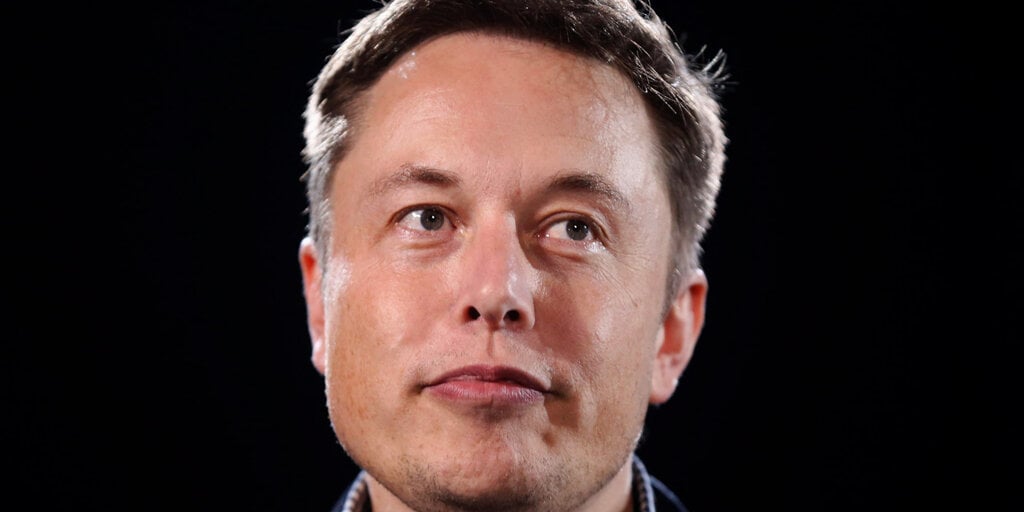SpaceX CEO Elon Musk has stated on multiple occasions that he wants to build a colony on Mars, but it’s unclear how this ambitious feat would be accomplished. Besides the enormous technological lift, there’s also the challenge of populating such an outpost once humanity arrives on the Red Planet. One option Musk has proposed, according to a report on Thursday, is to: New York TimessHis goal is to use his sperm to create new inhabitants of Mars.
of Times “Musk has donated his own sperm to help seed the colony,” the report said, citing anonymous sources, and the team is tasked with determining “whether humans could have children there. Other groups are looking at habitat and space suit designs, as Musk steps up efforts to turn his vision into reality.
The richest man in the world is already Father of 12 childrenSix of them are his children from a previous marriage, and three are with Canadian electronic pop artist Claire Boucher (aka Grimes), and three Neuralink executives Siobhan GillisThe number of Musk’s descendants could increase significantly as he has signed up as a sperm donor to help colonize the planet.
He provided his DNA for the Mars mission. Times The report delves into Musk’s vast space plans, with the tech mogul’s most recent public comments about his Mars ambitions coming during a presentation at SpaceX’s StarBase in Brownsville, Texas, in April.
“The bottom line is, we need to have enough people on Mars and enough payloads on Mars so that if something were to happen to Earth, Mars could survive and remain conscious,” Musk told the audience, emphasizing that he wants Earth to continue to thrive as long as possible, “but there are some things that are out of our control, so we want to get to Mars as soon as possible and build a self-sustaining civilization.”
“I think this can be achieved in about 20 years,” he asserted.
Musk’s interests span several business areas, including: twitter, Tesla, xAIand NeuralinkPublic feud with former business partner Open AI CEO Sam Altman-Musk continues to push forward with getting humans to Mars using SpaceX’s reusable rockets and technology.
Founded by Musk in 2002, SpaceX was a pioneer in the private space exploration industry that included competitors such as Virgin Galactic, owned by Virgin Group founder Richard Branson, and Blue Origin, owned by Amazon founder Jeff Bezos. In 2006, SpaceX was selected by NASA to win a $396 million contract to provide flights and services to space. International Space Stationand last month the company Take it off track At the end of the mission.
Musk has repeatedly said that humans Multi-planet seed.
“Eventually, especially on Mars, we’re going to need to build more spaceships than we do boosters,” Musk said, “because we actually want to use the spaceships, break them down, and use them as raw materials on Mars.”
SpaceX’s Starlink internet service will also play a role in the quest to send humans into space.
“Obviously, we want to make Earth the best place possible and Mars an amazing place,” Musk said. “Starlink is accomplishing its ambitious goals, and we’re learning a lot with this massive constellation. Starlink is also going to be incredibly important for high-bandwidth communications to and on Mars.”
But before SpaceX can land humans on the Red Planet, it needs to establish a permanent settlement on the moon, Musk said.
“Ultimately, we want to build a lunar base, Alpha Base, a permanently inhabited base on the surface of the moon,” Musk said. “So we’ll have a number of spacecraft dedicated to going to the moon and back, but they won’t land on Earth, they’ll just dock with pellet fuel tankers to refuel.”
Musk, who launched from the moon, told the audience that travelers will travel to Mars in a massive spacecraft. Spaceship It’s being designed by SpaceX, and Musk said the flight will take 26 months.
of Times The report outlines how Musk’s other companies could contribute to the Mars mission, including The Boring Company’s expertise in digging underground tunnels, Tesla’s Cybertruck vehicle for traversing Mars, and even Twitter (aka X) as a model for a “people-led government that governs by consensus.”
SpaceX did not respond to a request for comment. Decryption.
Edited by Ryan Ozawa.


